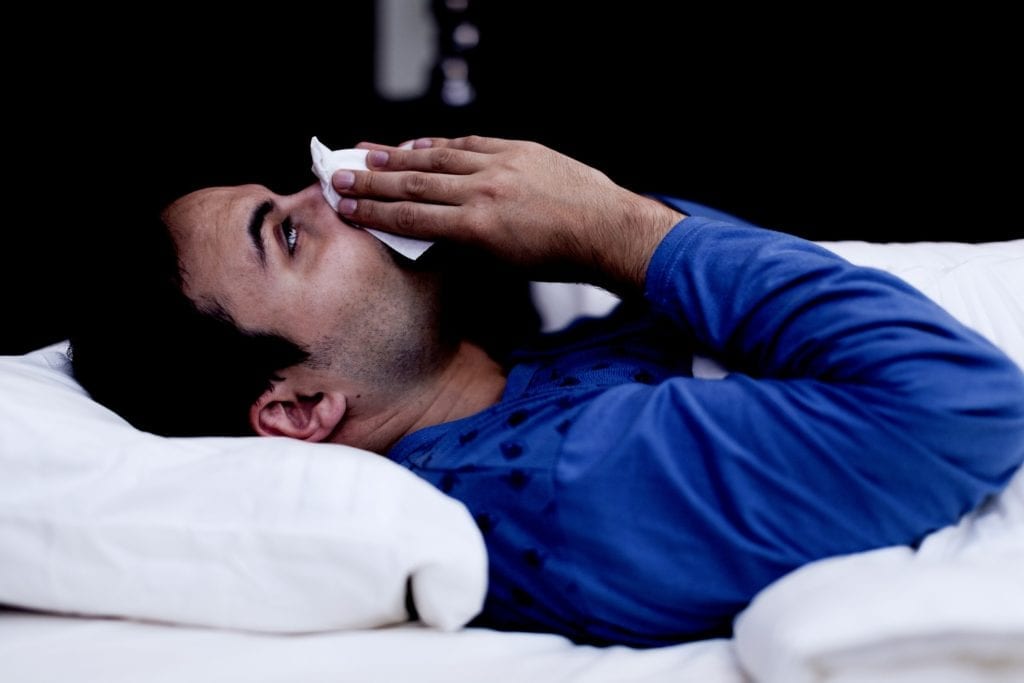You may have noticed worsening of your allergy symptoms during the nighttime hours. Does your nose start to run? Do you feel congested or have a lot of post nasal drip? Do you find yourself sneezing, coughing, itching, or snoring while sleeping? If nighttime allergy symptoms are preventing you from sleeping well, you’re not the only one! At least 50% of allergy sufferers report their symptoms affect their ability to sleep. We know that sleep deprivation affects our cognitive function, our immune system, and even our blood pressure.
Allergens In Our Bedrooms
Our bedroom and our beds provide comfort so we can sleep well, but there are allergens in these areas that can trigger an allergic response. Three key allergens include dust mites, pet dander and pollen.
Pillows and mattresses, particularly old ones, contain dust mites, which are allergenic. During the day, we also pick up allergens such as pollen and dust on our clothing, body and hair. In addition to dander, our pets carry dust mite and pollen on their bodies, so when they sleep in our bedroom and bed, we may be exposed to more allergens. During pollen season, pollen levels increase overnight and peak at sunrise. Sleeping with the windows open allows for pollen to get inside, thereby increasing our allergy symptoms.
Mold is another allergen that may be found in the bedroom, particularly in damp, dark, and moist areas. It can grow in bedding, carpets, and padded furniture. The more humid it is in your home, the more mold and dust mites will be present. Exposure to smoke at night also increases nose stuffiness. Nasal congestion may be triggered by cigarette smoke or smoke from burning wood in the fireplace.
What Can I Do To Decrease My Exposure To These Allergens?
- Get coverings for your pillows and mattresses that keep dust mites out
- Vacuum under and around your bed to remove allergens
- Remove bedroom carpeting if possible or vacuum your carpet frequently
- Remove items around or on the bed that collect dust
- Wash bedding in hot water to kill dust mites
- If the humidity in your home is above 50%, get a dehumidifier to keep humidity between 30-50% to decrease dust mites and mold
- Bathe and wash your hair before going to bed so you do not bring allergens into bed with you
- Keep pets out of your bedroom to decrease exposure to dander and other allergens
- Run a HEPA air purifier in your bedroom
- Keep your bedroom windows closed
Taking measures to decrease the amount of allergens in your sleep environment can improve your allergy symptoms. For some people, this alone may be enough. For others, medication and allergen immunotherapy (shots or drops) can help. Our board certified allergists at Advanced Allergy and Asthma are here to help. We treat food, insect, nasal, eye, and skin allergies, as well as sinus infections and asthma. Our offices are located in Fairfield County, CT in the towns of Danbury, New Milford, Ridgefield and Norwalk.
– Neetu Godhwani, M.D., M.P.S.

